|
"Your friend is an ignorant anti-Semite." The comment was from a stranger, a friend of a friend who had shared my last post, and though it upset me, it also got me thinking - what is anti-Semitism? Where is the line between a government and its people? And had I crossed that line? I entered this country of conflict already on the Palestinian side - was I responsible, then, for my interactions? An acquaintance wrote to me on the same post, expressing that he hoped I knew those two conversations did not represent the feelings all Israelis. I had trouble responding, baffled by the assumption that I could even harbor that thought. But when a stranger (who is Israeli) said the same thing to me, I responded that no, of course not, I would never presume that. I just became very afraid to talk to people after that because if they found out I was spending time in Palestine . . . so I had shut myself off from other people . . . Damn. Their hate had won, even if only for a few days. Two individuals. I did not have other experiences with Israeli men and women because I was afraid. For three days, I allowed two interactions to create fear of an entire group of people. It is right there in the word - xenophobia. Anti-Semitism. Fear. Hate. But this post is supposed to be about the last week of my trip. A wonderful week with Cherif in Barcelona, Berlin and Copenhagen. As I stood on the roof deck of our hotel in Barcelona, awaiting my beautiful boyfriend's arrival, I found myself nervous. Not about our relationship - the magic of Skype and Viber meant we had talked or texted almost daily, so I knew our relationship was solidly in tact. I was trepidatious because I had learned to function as a loner, solitarily roaming the world and fending for myself. Did I still know how to be part of a team? There were no worries. Cherif is an adventurer, too, and off we went into the city knowing only the direction of the sea. Barcelona was lovely and we were, I am equal parts and ashamed and proud to admit, two picturesque homos wandering that fantastic city. From fountain to street cafe to castle, Paella and tapas and cafe solo y cafe con leche. It is a glorious city with beautiful streets and beautiful people. We wandered throughout, climbed the mountain to Montjuic to view the city and stopped wherever we liked after our Gondola ride back down. We stumbled upon an entire street, closed off to traffic, filled with one-Euro tapas restaurants, overflowing with Spanish laughter and all vaguely underscored by the scent of marijuana. And we talked, a lot about my experiences and his time in Copenhagen, but at one point Cherif asked me stop talking about Palestine. "I can't," he explained, "Just for a little bit. It makes me too sad." And we boarded our flight to Berlin. Staying there in another gay hotel, I must say I was again relieved to be able to be a free-roaming homosexual. Berlin, believe it or not, is even more gay than Barcelona. Again we walked for miles, knowing only our general direction and seeing whatever came across our path. Berlin is a terribly modern city, with most of its more classic architecture having been destroyed in the second World War. In addition to the myriad of gay sexual options, there are many monuments and museums, testifying to Berlin's rich and complicated history. Almost accidentally, I found myself in an outdoor memorial to the Gypsies killed in the camps, weeping uncontrollably. Did I feel some ancestral connection to these people? Or was it just their wandering souls, slaughtered for their lifestyle in a time when millions of others were also killed for no reason? I'll never know, but I wept for these nameless undocumented victims, lost without note in a time when so very many were also lost. And off to Copenhagen . . . The Danes are beautiful people, and Copenhagen is a clean and lovely city. Thousands of bikers line the streets, zipping along with the assurance of their free education and health care, happily gay-married and often riding with a beer in one hand and a phone in the other. But I was not there, really, to see Copenhagen. Or at least not the sites. I was there to see where the man I love spends his days. We visited his home, his library, his favorite coffee shop . . . met his friends and his roommate . . . I was there to see his life. Home, now, it is so nice when he calls to be able to picture him where he sits.
On our last night together, we had a little couple spat. It was a stupid and short-lived argument that I started, and I will not bore you with the details of my idiocy. For it came down to one simple thing: I was afraid he might love me less than I love him. Is that not, always, what it is really about? Fear. It is a powerful force. Many people have told me they think me brave for taking this journey, which I find embarrassing and untrue. But fear of the unknown, fear of getting lost, fear of strange different people who eat different food and speak different words - these are seemingly monumentous obstacles that serve to keep us in place, ignorant and still and unconnected. Fear had kept me from learning and speaking in Tel Aviv. Fear of loving had caused me to create distance between myself and the man I love on our last night together. Though the distance between he and I was temporary and we came back to each other in the same night, the other chasms of fear are still quite wide. "The conflict will never end." I was told by Israelis and Palestinians alike, and it may be true. For both sides are terrified of the other. And everybody, on any side of any conflict personal or international, is afraid to lose. When did we become this world? Where to love more than the other is to lose, and to hate more is to win? Five weeks and six countries. French, Arabic, Spanish, German, Hebrew, Danish, English, customs and families and art and love and homes and monuments and fences . . . and everyone, myself included, wants to know what it all meant. And I have no idea. Except that I am, hopefully, a little less afraid to love. - - Adam
3 Comments
"Did you know that Arab women, not all of them, but a lot of them, MOST of them . . . Arab women only have children because they hope the child will be a male so she can strap a bomb to him and send him into Israel to kill us. That's why they have babies." My plane from Barcelona to Tel Aviv had not even begun to taxi, and my row-mates, a young Israeli man and his girlfriend, found out I was an American and came straight at me with questions regarding my thoughts on the "Israeli-Palestine problem". I had prepped myself well for customs, but I was not ready to be interrogated on the plane. As a lover of languages, I was well aware that every person in at least five rows in both directions was speaking only Hebrew, so I was more than hesitant to enter this debate. I laughed nervously, then claimed I did not know enough to answer intelligently. When his verbal essay on Palestine did not seem to sway me in the way he had hoped, he came out with the above gem of knowledge. In my head, I was thinking that I know several Arab mothers and exactly zero of them want their children, male or female, to die in a bomb explosion but instead I looked him in the eyes and said, "Wow." I let him believe my awe was at his statement, when in truth I was overwhelmed by his despicable racism. That seemed to satisfy him and we moved on to American television and life in Israel. Customs, though intense, was relatively easy. My five-day trip in Israel as a tourist seemed perfectly reasonable, so through I went and out to the curb. The airline had claimed to have found my bag, but at five AM I thought it better to find my apartment and deal with the bag later (it was finally delivered that evening), and I hopped in a cab. "The population of Jerusalem is around 1.3 million people," my cabbie explained as we discussed Tel Aviv versus Jerusalem, "unless you count Arabs as people. Then it's 1.5 million." His phone rang and he answered it, covering the silence of my horror. Welcome to Tel Aviv I spent the afternoon at the Tel Aviv Museum of Art, which saved me from my own disgust and fear. The artists can always remind and inform me, and seeing works exploring terror, war and cultural identity in a nation besieged by hatred and resentment and persecution helped my to put my first two interactions in context. But still I was thrown. I had not encountered racism and hatred like that in such a casual manner . . . ever. My naiveté was shattered, and my hopes that this country would, too, change my pre-determined notions of rampant xenophobia was sifting away in the actuality of these neighboring and warring peoples. On the beaches of Tel Aviv that evening, I was furious at the tourists sipping martinis and giggling (Tel Aviv at night by the beach reminds of a beach town anywhere in the world, dotted with looming hotel chains and cafes while half-dressed men play volleyball and couples stroll hand-in-hand on the boardwalk), but I realized I had no right to be angry. When I pop into Starbucks on Ninth Ave chatting on my iPhone, I ignore the conflicts of the world and live my life. Proximity does not excuse apathy or create activism - everyone just wants to be happy, and for most of us that means pretending the world stops at our periphery. Distance from the problem does not give us absolution. It was time to go to Palestine. Armed with assurances from my lovely host Eli (a wonderful Israeli-Persian man who quizzed me each morning on my travel plans to make sure I had them correct, and joked that he would keep my stuff if I didn't make it back one night), I hopped the bus to Afula where I was to meet a car that would take me across the checkpoints and to the Jenin refugee camp. Loaded with Israeli soldiers, children armed with M-16's (okay, I don't actually know anything about guns, so I think they were M-16's...) doing their required military service - off we went. After a little confusion, I found the driver and we headed in, across the boarder (where he was questioned and I was waived through with a glance at the United States emblem on my passport) and into the Jenin refugee camp. Everything you have been told about the Palestine people is a lie. Every image forced upon us by the media and the Israeli propaganda machine - dusty angry Arab men holding make-shift weapons and spending their days plotting the fall of Israel - is complete and utter crap. These men may exist, but when I entered the West Bank, this is what happened to me: The people at the Freedom Theatre had arranged for my transport both in and out of the camp. They met me at the theatre with a warm and beautiful greeting and introduced me to everyone around. They then, of course, fed me - a sesame broth stew that I can still taste, and coffee after (always). Nabil, the Artistic Director, showed up, greeted me like an old friend, and drove me to the rehearsal hall where I was introduced to the acting company and technical staff . . . and fed again. Di, the British director, greeted me and explained her hesitation at having me in rehearsal, so we worked out my cue to leave if it seemed my presence was distracting. It was truly incredible, in the midst of this place and under this oppression to see exactly what I would see in any rehearsal anywhere in the world. Artists struggling between the text, ego and their own lack of focus. A frustrated and loving director trying to pull it together in what never seems like enough time. Back stage shenanigans (including a fall and a trip to the hospital) and repeated stops and starts and, eventually, two scenes came together. "Well I think we might almost be telling a story." said Di with a smile. After rehearsal, a quick company meeting to discuss tech and schedules, and the company was dismissed. I do not know what I expected to find, but it wasn't this. It wasn't just people trying to make a decent piece of theatre. Theatre is my church, and I had stumbled upon the temple in a refugee camp in Palestine. The rituals of the mass were the same. After rehearsal we went to coffee and then to Nabil's house for more food. Beers arrived and pasta was served and art and theatre and sex and life were discussed and a TV was moved around to get better reception for a futbol match. At one point, Micaela (the movement director and Nabil's wife, an incredibly talented and insanely intelligent artist) brought up Israel, and Nabil and his friend groaned at her seriousness, "PLEASE can we not? We are having a nice time and enjoying each other. Let's not talk politics!" Politics. Politics?! I had observed a state of life that brought up images of Nazi Germany - check points and abuse, police state and random arrests and jailing, harassment and racism and a rhetoric filled with words like "sub-human" that was so used it was commonplace talk in public transportation - and they called this politics?! At last my mind had been changed. I had come in with images of resistance and armed with conversational nuggets about the occupation, but what I found was human beings. Intelligent, gentle human beings frustrated with the ins and outs of daily life and who took me into their homes and work with a love and hospitality that I had only encountered in Arab nations. I wanted to talk about the injustice - they wanted to have me over for dinner and get to know me. I was floored. Welcome to Palestine The next morning, after staying in an apartment with two yoga teachers and a filmmaker (three incredible women in Jenin trying to make a difference) I went to the theatre to say goodbye. Jonatan, my original contact and host, had again arranged for me to get out, this time with a driver who would take me all the way to Tel Aviv. And we were off, with promises to stay in touch and a hope to work together in the future. We drove out a different way, through the mountains of Palestine and in and out of towns and cities. I was so sad to leave and wished I had arranged to stay another night. At the checkpoint, the driver was harassed but I was waived through - yet again a white face, an American passport and a smile can get you whatever you need. I wanted to scream at this girl with her gun and her smug look and her racism and her fear, but what good would it have done? My passport may let me in and out, but it cannot save anyone else from the injustice it represents. Or can it? This is where I am supposed to say she was just doing her job. Back in Tel Aviv, I sat on the beach and watched the sun set with rest of the privileged world. The next day I headed to Jerusalem, but I must admit, at this point, I was mainly going to gather evidence of my tourism. I wanted to go back to Palestine. I met an American girl who overheard me asking for directions in English, and we toured the Tower of David museum. I relaxed, settling in to learn. The museum, a restored fortress, gives a terrific (and surprisingly objective) history of the land inclusive of all religions. I was especially moved by this piece of text: I said goodbye to my new friend and wandered into the Old City, planning to make my way through the Jewish Quarter and into the Muslim Quarter, eventually winding over to see the tunnels under the Western Wall. It was a market, not unlike Marrakech, with hundreds of small shops and winding tunnels. At this point in my travels, I was quite adept at wandering these vendor stalls, noting that the tea pots and Muslim items had been replaced by Menorahs, Israeli flags and other Jewish items. I almost didn't take note of the large Israeli shopkeeper coming at me, assuming he was going to try to lure me into a purchase, until he got very close to me and snarled viciously into my ear at a volume clearly intended to be heard by others, "Go home FAGGOT! You are not welcome here." Welcome to Jerusalem I walked on, pretending I had not heard him, but suddenly the winding chasm of shops seemed like a cage. I moved at exactly the same pace, but inside I was in a panic to get out. Finally finding my way to the exterior walls of the Old City, I turned right, heading via the exterior to find the Muslims. I cannot explain why I needed to be around Arab people after a homophobic interaction - they are, too, a people and religion that does not accept who and what I am - but I knew I would find welcome there. Calmed a bit, I decided to skip the markets and walk, instead, to see the sites around the exterior, an awesome and inspiring conglomeration of the major world religions. I had purchased a ticket to explore the catacombs under the Wailing Wall (as with the Mosque in Morocco and my respect for that religion, I observed the religious site without participating in the ritual) and had more than an hour to kill before the tour began. I wandered back into the Medina, past a few small restaurants and shops, and found this place. When the young Middle Eastern boy working with his father offered me Shawarma, I almost hugged him. I relaxed in the music and food and hospitality, finally at peace a bit in this strange city of religious pilgrimage. Fed and with a little bit of calm, I wandered back to the Wall. Some security issue had arisen and the tour was cancelled. Not bothering to try for a refund, I decided it was time to go back to Tel Aviv, pack and leave this place.
Getting through Israeli customs is an adventure. The risk, apparently, is that you will be questioned and not allowed to return. I had re-prepped my computer and gathered proof of tourism. I had left my Arabic notes in at the hotel in Barcelona, so my only worry was if my time in the West Bank had been documented. But yet again, an American passport and a smile and I was whisked through, even being taken up the employee elevator when my bag needed to go another way. The young man swiping the wand through my carry-on apologized (three times) for having to throw away my yogurt (the symbolism is not lost), and waived me away with a bright smile and a "Please come back to Israel Mr. Fitzgerald! You are always welcome here!" As long as you are white. And American. And do not mention Arabs. Welcome to the world I would like to say that I cried on the plane. Or that I made a grand declaration of the injustice in the airport. Or that I even understood any of what had just happened. But the truth is just sadness. I was, and am, so saddened by the hatred and racism I had encountered. There is no religious war in occupied Palestine. There is a race war, and it is more vicious and complicated than I could have imagined. I do not understand it, but it has changed me. People from all over the world travel to the Holy Land to encounter God, in whatever form or by whatever name they address their own deity. I am not sure he is there. - - Adam Forgive me readers for I have sinned. It has been quite some time since my last confession... I am currently in Tel Aviv, but I will need to land in another country before I am able to process the flurry of emotions and experience I have had here. Luckily, I haven't written a post in quite some time and am several cities and some lost luggage behind, so I have a wonderfully valid excuse to delay. My last few days in Marrakech were a flurry of activity. Classes continued every morning, and I began to make some traction, occasionally even having an uninterrupted (if slowly paced) basic conversation. The last day was a bit frustrating as Hayat tried to cram in another week into a single day, but overall I am very happy I took the class and hope to continue my studies back in NYC. One evening during my final week I ventured up to Yahya's apartment to join him and a few guests. It was a small gathering, consisting of me, Yahya, his newly-found (via Facebook) half brother (a French Muslim who works in a hotel in the French Alps) and his friend Kim (a Japan-born ethnically Chinese entrepreneur). We sat around discussing Marrakech, politics, language, music, money and the world. Kim was especially amusing: Kim: I hate it here. I hate this city and I hate these f&*$cking people!! Me: Really? Kim: Yup. This place sucks. Sorry Yahya. Me: Then why don't you leave? Why do you stay here? long pause, big smile Kim: To beat them. To win. Kim has 100 business ideas ranging from a laundry service to a night club, and once she heard I worked in theatre she tried to convince me to move to Morocco, turning the club into a dinner theatre. Yahya and I broke away into a private conversation about travel and nomadism (while Kim verbally accosted his half-brother for an explanation of Islam), valiantly discussing our travels and future plans. We loftily elevated ourselves in the way that can only happen between two people who will go anywhere and try anything. We never discuss the creeping fear behind the joy, the feeling that in our Life Handbook the index contained a chapter titled "How to Settle Down and Find Satisfaction" but the pages of that chapter seemed always to be missing. It is not that we want such a life now, but rather that there is, unspoken, a fear that it will never arrive. The next afternoon I ventured to the amazingly beautiful (and unfinished) Theatre Royal de Marrakech (exterior pictured above). It is a stunning building containing an immense entry, administrative space, giant meeting halls, an opera house (to be completed in the next two years) a semi-outdoor amphitheatrical performance space. I was given a tour by the incredibly gracious facilities manager. I want to work here someday. That evening I met Khalid (the man who runs the school) and his friend for coffee. Joe is a PHD student in Anthropology who is in Marrakech (from the UK) to complete research on his dissertation. His focus is the underground society of illegal tour guides (and other non-sanctioned workers) and he is very passionate about the government mistreatment of a group of people forced into poverty by the very system that now abuses them for their attempts to earn a living. Joe and I strolled home together, and I asked him how he achieves cultural objectivity in order to truthfully examine (and subsequently write about) his subjects. His research (and his passion) re-raised, for me, the ethical scale question. After a long and fascinating discussion, he told me, "Well you can't, really, I suppose. It's impossible to leave yourself behind. But we try, right? We just have to try." By my last day in Marrakech, I must confess I was ready to go. I was supposed to meet a man for coffee (whom I had met the night before) and he seemed lovely, curious, and excited to practice his English. And it made me very sad. I had grown weary of the constant examination of "Friend of Foe", tired of walking around with armor and a weapon in constant preparation to push off and make a run for it at the first signal that a new acquaintance was, instead, another hustler. I cut our meeting quite short and headed home to pack. I did not have the energy to discern again. So without fanfare, I had my last meal at a cafe down the street. I went to my favorite coffee shop to sit and observe and sip jet-fuel cafe noir and say goodbye to this city I had grown to love. I jumped in a taxi the next morning and was off to the airport. I arrived insanely early, so I was fourth or fifth in what quickly became an enormous line when our ticket counter opened. The Royal Air Maroc employee informed me that they could not print my second boarding pass to Madrid. I would need to pick it up in Casa Blanca before my connecting flight, but she checked my bag through to Madrid, affixing the "Madrid" bag-check sticker to my passport. The rest of my morning afternoon went something like this: -Long line for security -Fight with Passport Agent about the difference between my boarding pass and the baggage sticker, he eventually waves me through but refuses to stamp my passport. -Wait for delayed flight. -Arrive in Casa Blanca, wait in long line to check my passport, suppressing rising panic as the clock ticks towards my connection. -Fight with Passport Agent as to why the Marrakech agent wouldn't stamp my passport. -Fight with second agent who accuses me of skipping the previous line. -Long line to get boarding pass. -Long line for next passport agent, but by this time I have learned and pretend this is my first flight so the sticker matches my pass. The boarding time for my flight has passed. -Get through, figure out gate change, board plane with minutes to spare, take off for Madrid. And suddenly it hit me. I just had four heated and lengthy verbal arguments and they all happened in French. I hadn't even realized . . . my French was back! Amazing!! Oh F*&%k, I'm on my way to Spain! My bag was lost in transit en route to Madrid, so after a terrible Spanglish conversation I was made aware that I also had an incomplete address for where I was to stay for the next two nights. In my head, "Okay. No biggie. Email Miguel, get in a taxi, go to the neighborhood, find a cafe, make sure email went through. This is fine, look at this gorgeous airport you're in a very accessible city, and you don't have a bag to lug around-" "Hola senor! Hello sir! Do you need a-" "No. Gracias" (head still down, well trained by NYC and Marrakech, get out to curb...) It was the cell phone people. And I needed a cell phone! (Cue heavenly music and shaft of light) While I waited for the young man to return with change from my ATM-withdrawn large-bill Euros, the woman asked me, "Why are you alone? Why you are not with your girlfriend or your boyfriend?" No. Pause. Between. Genders. I had no idea of the weight I was carrying from pretending to not be gay. I had accepted it very early in Marrakech, where stories of Cherif were told as "my best friend" and where I had learned to very easily play along that I was still searching for the right girl. I had grown accustomed to this farce, because those are the rules in a nation under Muslim law. But here I could be gay again, something I desperately needed before the next leg of my journey. I explained to the woman how wonderful it was to be asked "boyfriend?". She hugged me and said, "Sweetheart you are in Spain now. We love you here." I found the apartment (via text from my new cell phone) and I found Madrid. What a wonderful city! Calm and clean, easy to manage and with very few English speakers (which translate to minimal tourists). Time to practice my Spanish! And find gay people! And drag queens!! My two days in Madrid, save for the periodic arguments with Iberia Air about my still-lost bag, were lovely. I chatted with people in terrible Spanish and they forgave me. I bought some t-shirts and underwear and socks at H&M, wondering if my luggage (including the computer I was to deliver during my Tel Aviv stay) would ever arrive. I went to a small theatre that produces new work, and loved it (well-done comedy is hilarious in every language). I ate in small cafes, spent too much money and wandered cobblestone streets. My last morning in Madrid I went to Starbucks (oh shut up . . . I just spent three weeks in Africa I am allowed a little familiarity!) and had a full conversation in Spanish. Ha! I'm coming back to THIS language! Look out Spain . . .
And off I went to the airport, headed for Barcelona, six hours there including dinner with my friend Philip (the very one I met in Marrakech happened to be having his last night Barcelona) and then a midnight flight to Tel Aviv. Spanish customs had waived me in without a stamp in Madrid, so I was a little worried about my exit, but it was no problem. The American passport is truly the most unjust piece of paper in the world, and I am very lucky to have one. And now I am in Tel Aviv. There is so much to process here, and my semi-impromptu stop in Madrid was ever-so needed before this emotional roller coaster. But more on that next time, when I have had time to think and reflect, and when I feel I can speak more freely. For tonight, though, I am keeping those secrets and lies to myself. Love the sinner, hate the sin. - - Adam |
AuthorADAM FITZGERALD ArchivesCategories |
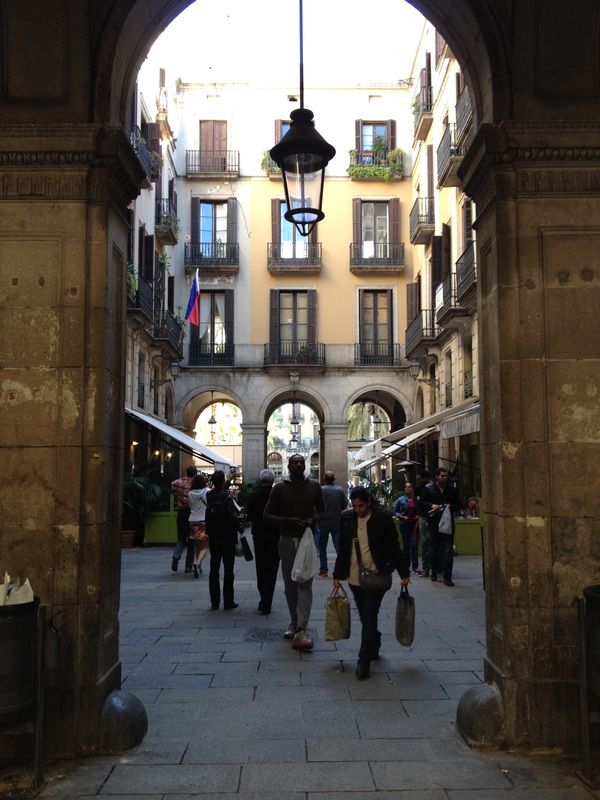
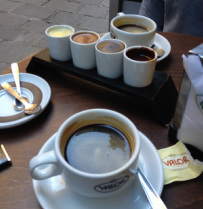
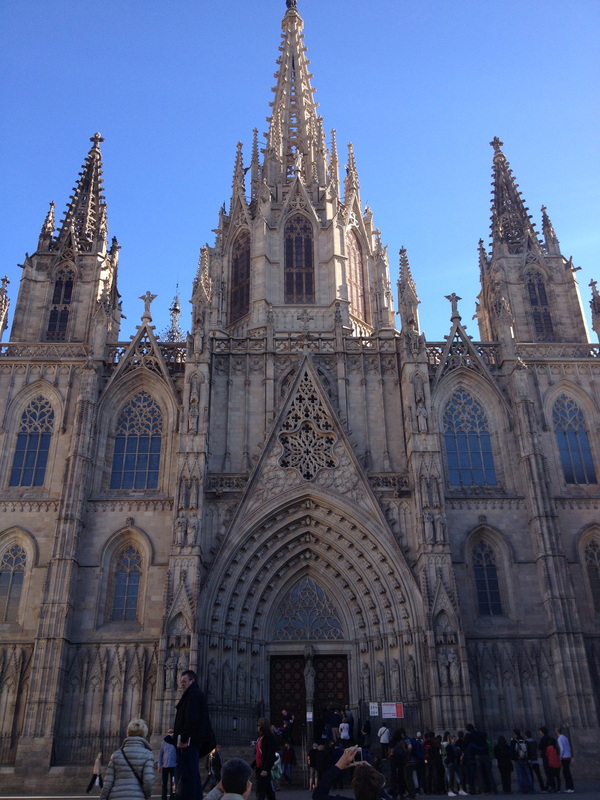
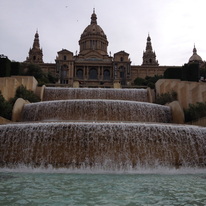
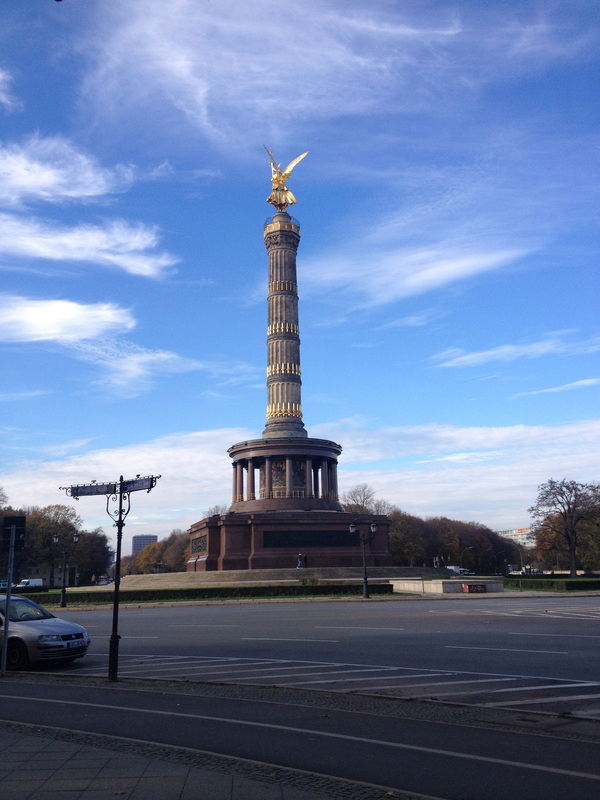
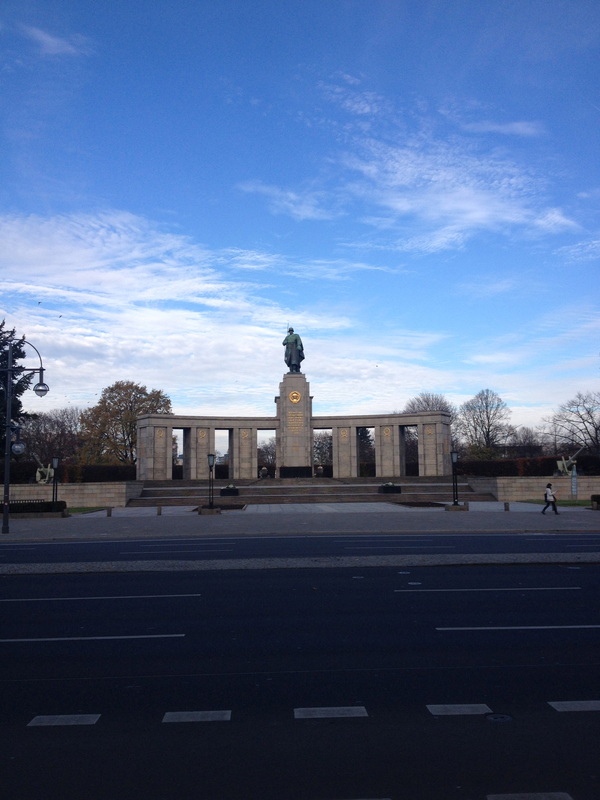
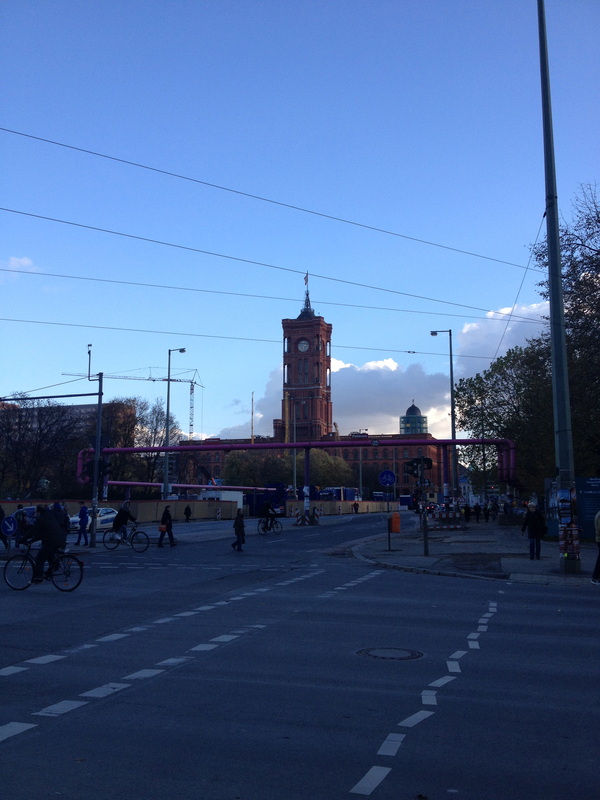
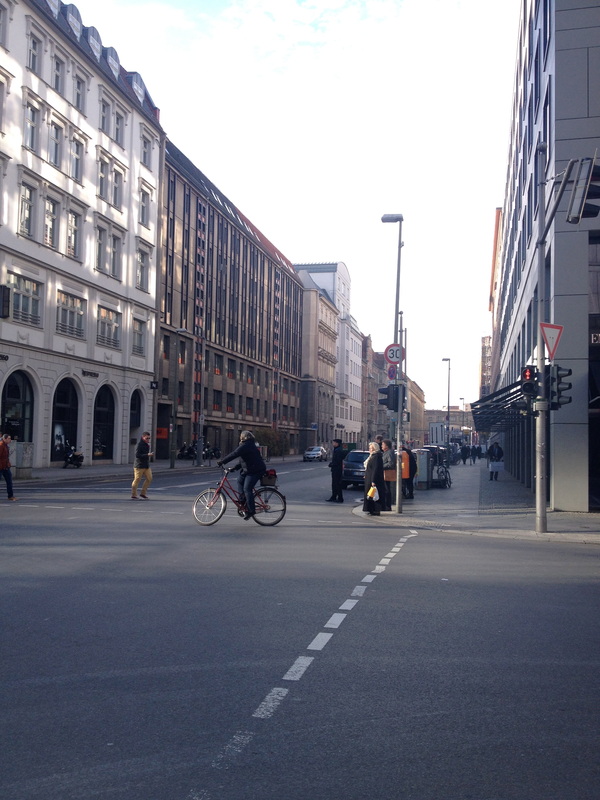
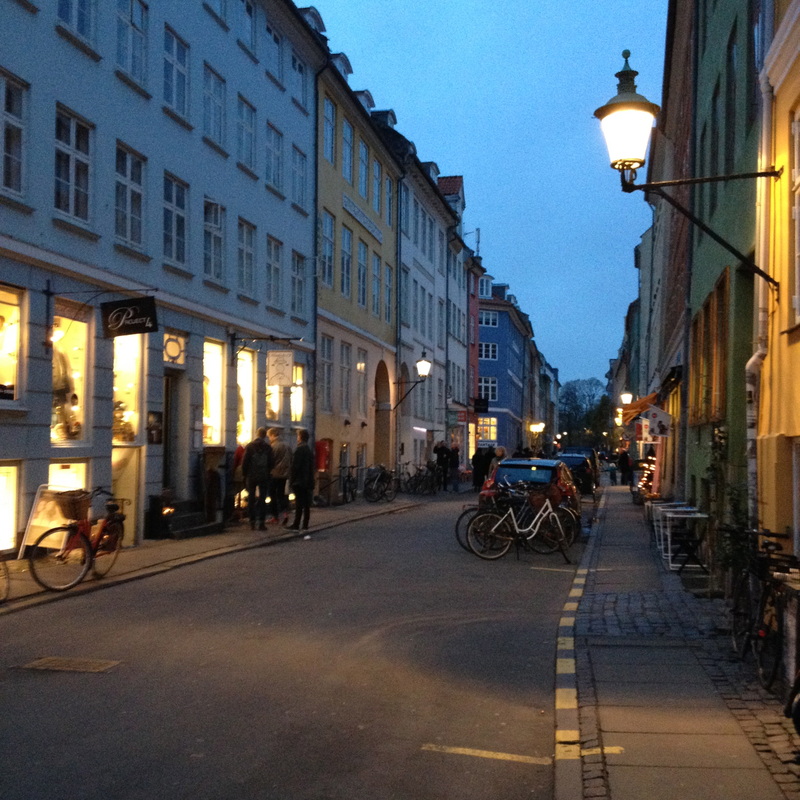
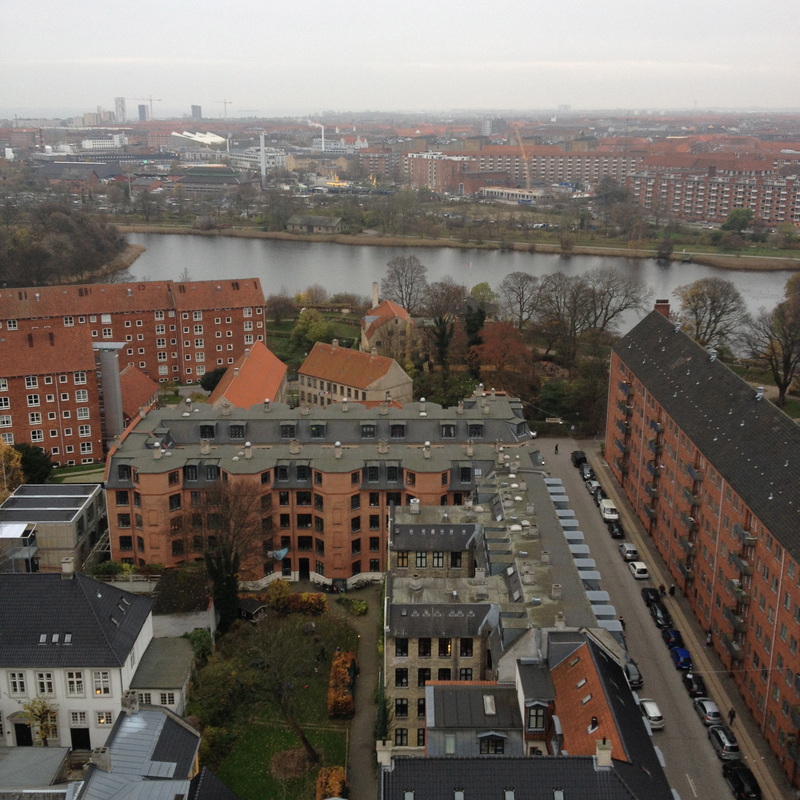
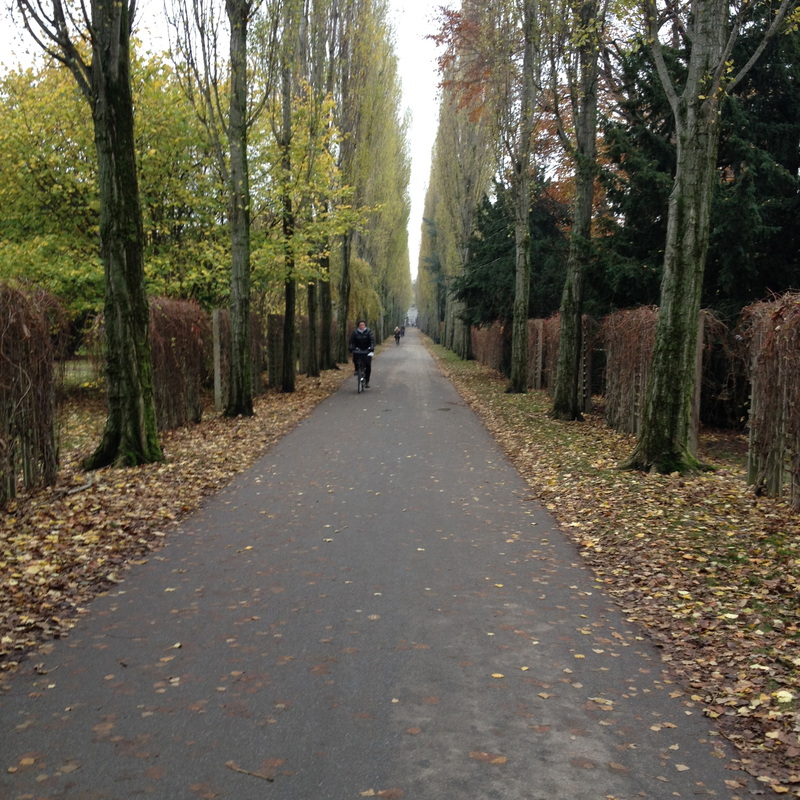
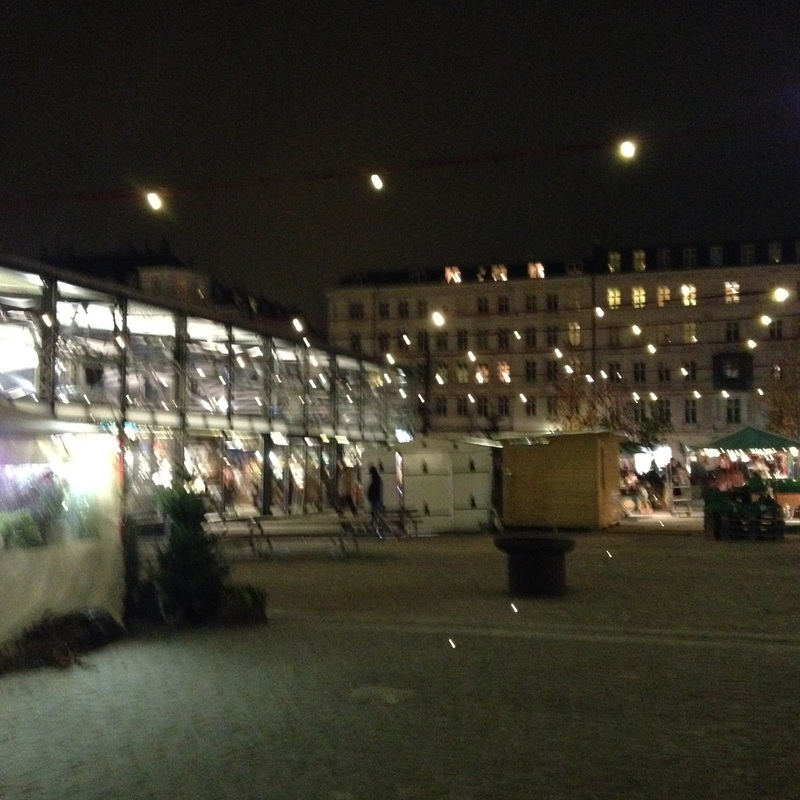
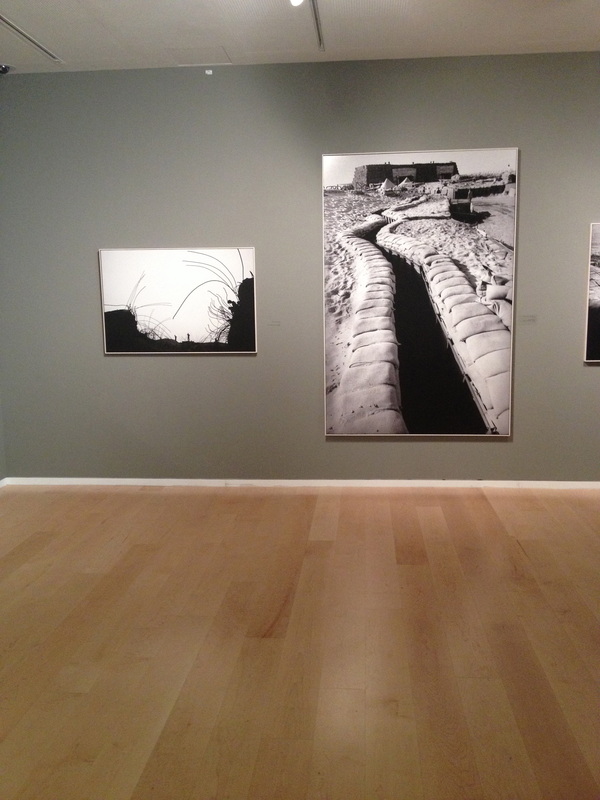
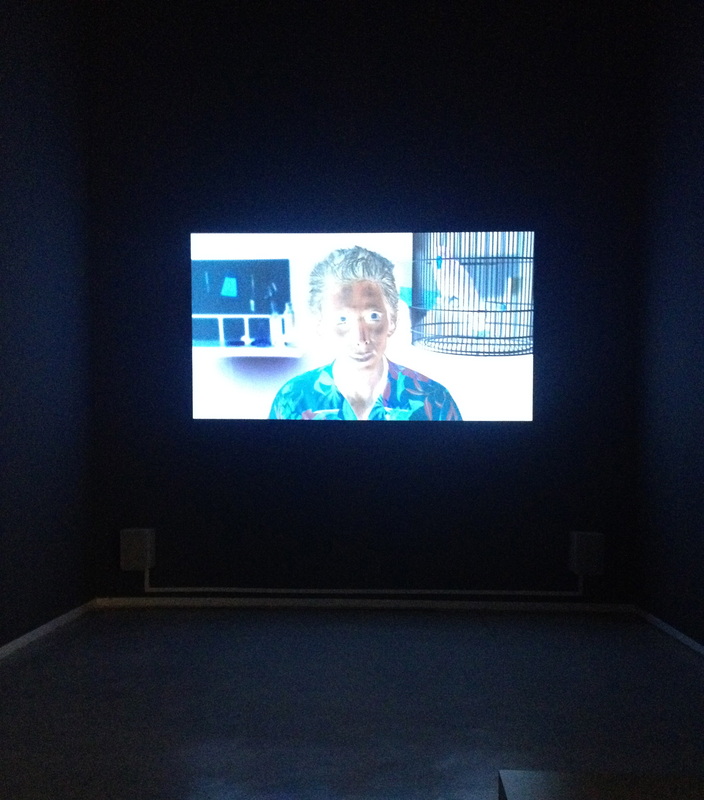
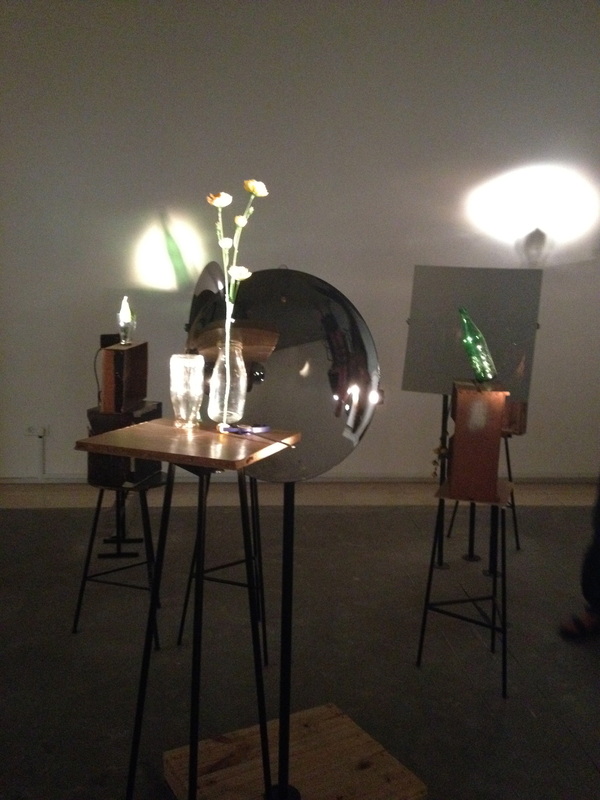
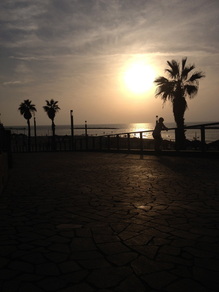
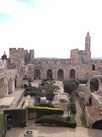
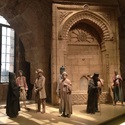
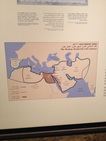
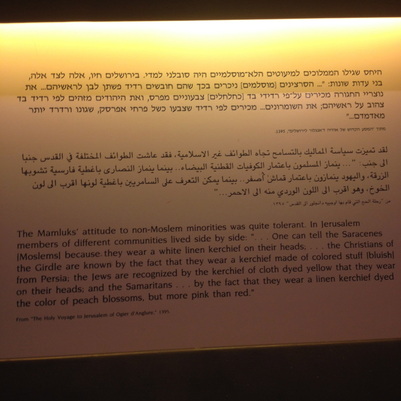
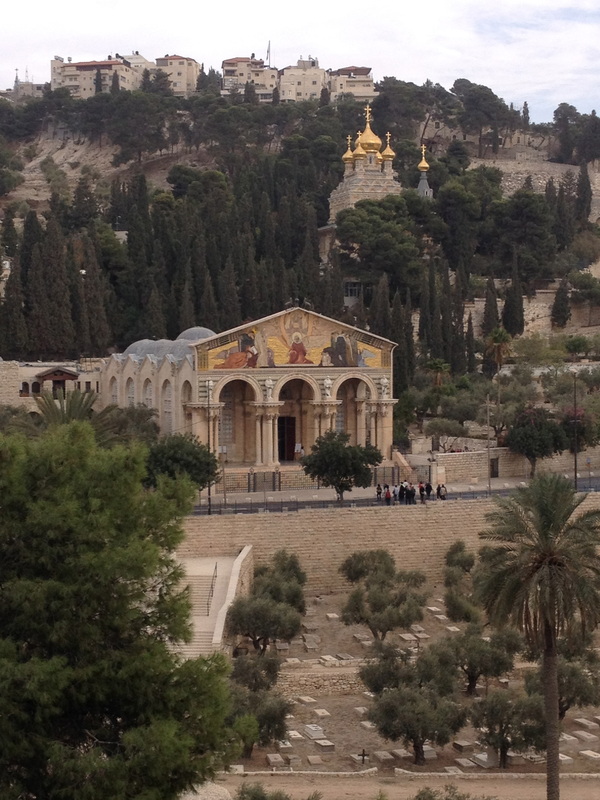
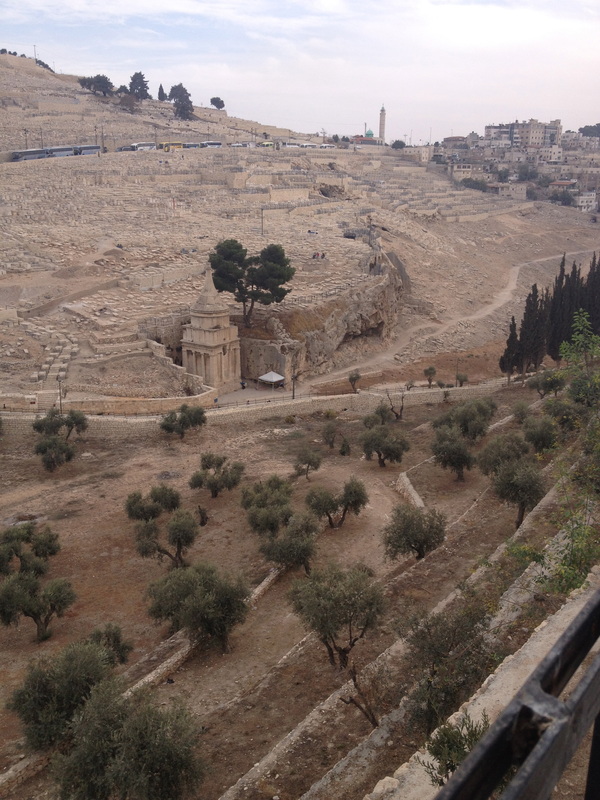
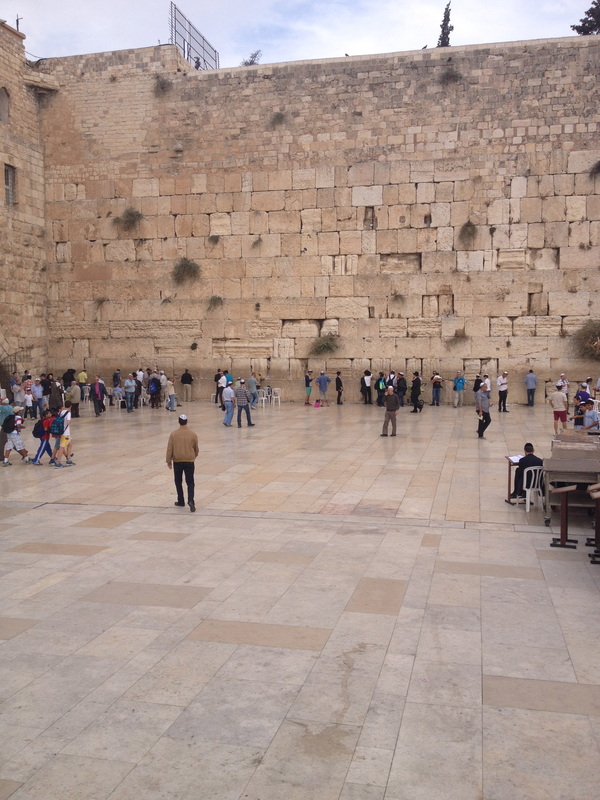
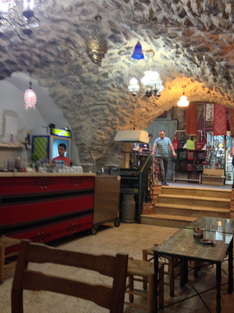
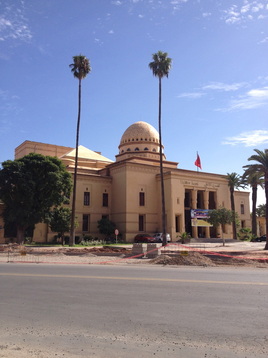
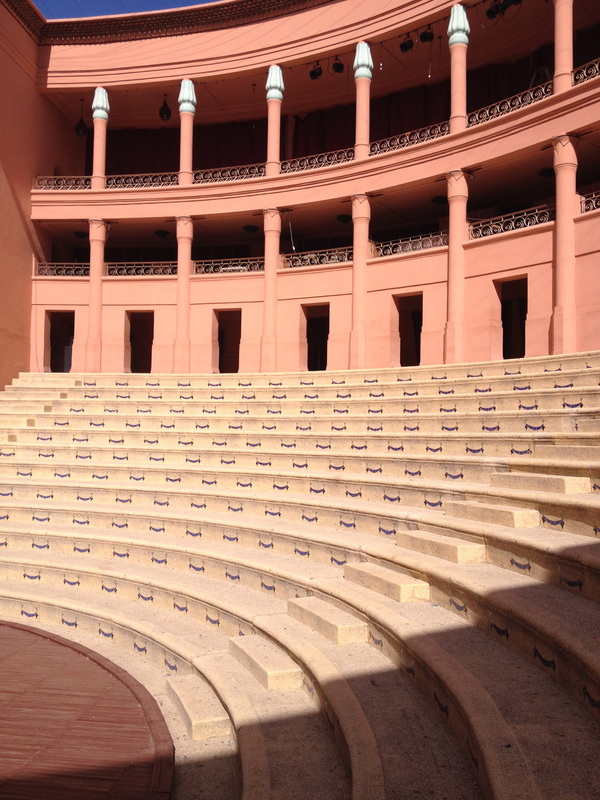
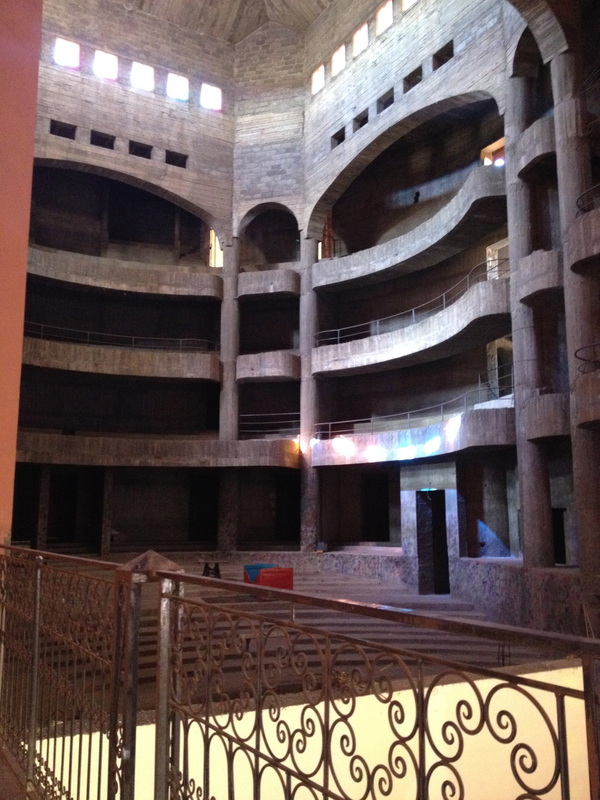
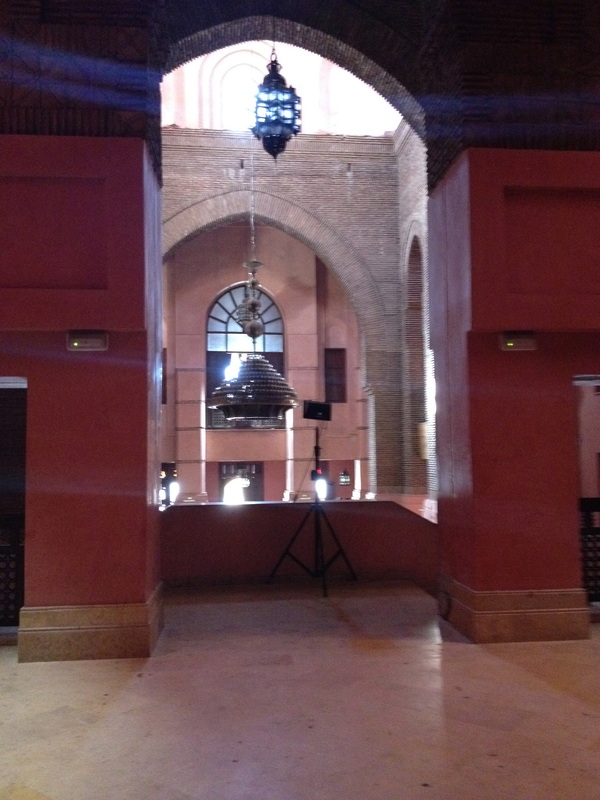
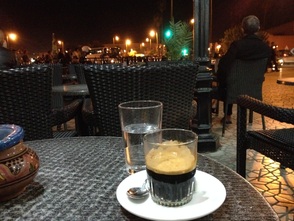
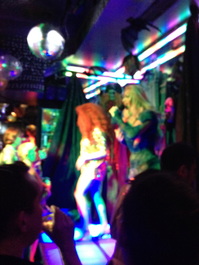
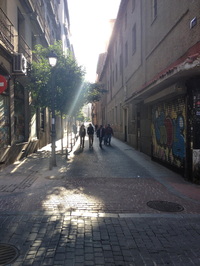
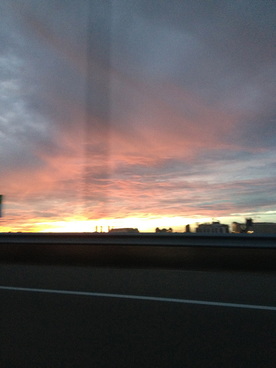
 RSS Feed
RSS Feed
